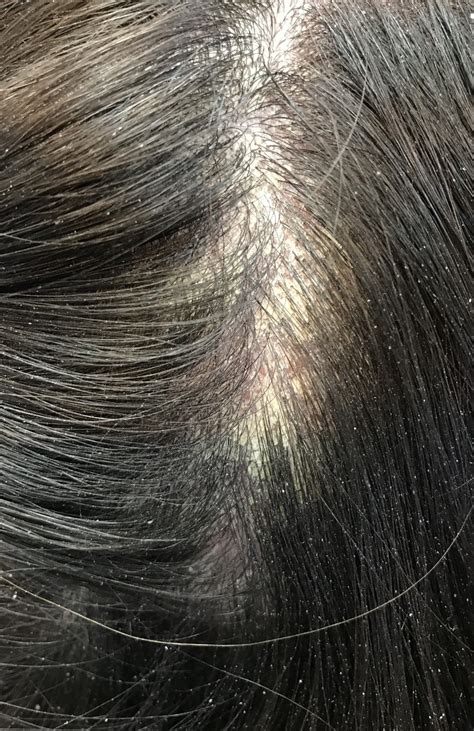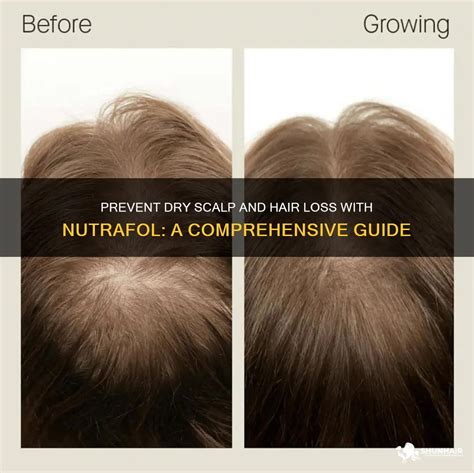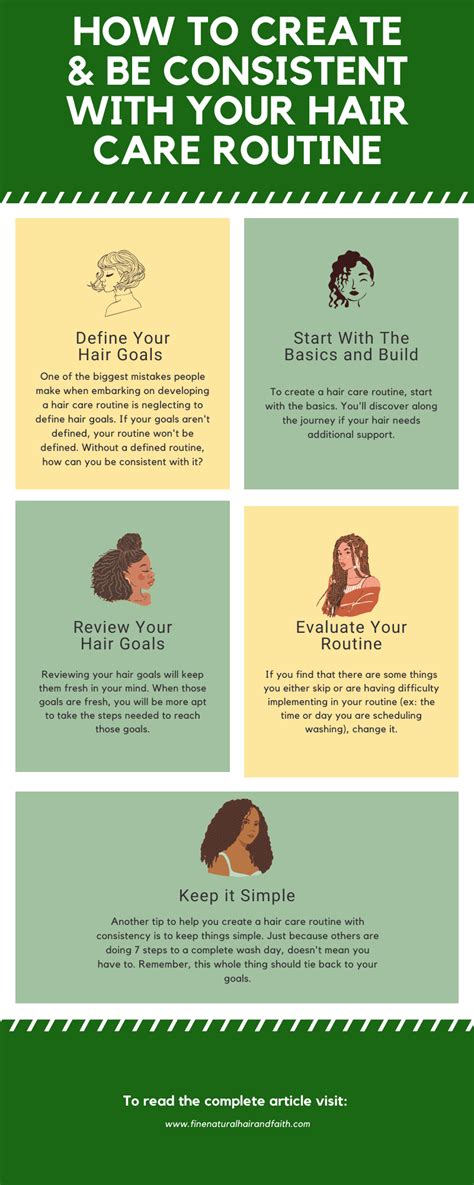Have you ever found yourself consistently grappling with the discomfort of an itchy, flaky scalp? The persistent urge to scratch and the unsightly flakes that seem to cascade onto your shoulders can truly mar your confidence. Understanding the underlying causes, effective treatment methods, and preventive techniques is crucial in combating this common ailment.
No one desires to endure the inconveniences brought about by an irritable scalp. The origins of this condition can vary, from specific medical conditions to environmental factors. Identifying the root causes is essential in order to select the most suitable treatment options. By addressing the underlying factors appropriately, you can experience long-lasting relief and regain a healthier scalp.
Exploring different treatment methods for a dry scalp is vital to finding a solution that works for you. From over-the-counter shampoos and home remedies to prescription medications, several options exist to alleviate the discomfort and restore your scalp's health. It is essential to select a regimen that caters to your specific needs, taking into consideration any potential allergies or sensitivities.
Prevention plays a crucial role in maintaining a healthy scalp and preventing future bouts of itchiness and flakiness. Adopting a consistent hair hygiene routine, incorporating a balanced diet, and protecting your scalp from harsh external elements are just a few preventive measures that can promote scalp health. With regular care and attention, you can reduce the risk of experiencing unpleasant scalp conditions in the future.
The Roots of Dry Scalp

There are various factors that can contribute to the occurrence of dry scalp, resulting in discomfort and itchiness. Understanding the causes behind this condition is essential for effective treatment and prevention.
1. Insufficient Moisture: A lack of moisture in the scalp can lead to dryness, as the skin is unable to retain adequate hydration. This can be caused by a variety of factors, including environmental conditions, frequent washing with harsh shampoos, and excessive use of heat styling tools.
2. Sebaceous Gland Dysfunction: The sebaceous glands in the scalp are responsible for producing natural oils that help keep the scalp moisturized. However, when these glands are not functioning properly, either due to genetics or hormonal changes, it can result in dryness and flaking.
3. Excessive Use of Hair Products: Constant exposure to chemical-laden hair products such as hair dyes, gels, and hairsprays can strip the scalp of its natural oils, leading to dryness. Additionally, certain ingredients in these products can cause allergic reactions, further exacerbating the issue.
4. Skin Conditions: Dry scalp can also be a symptom of underlying skin conditions such as eczema, psoriasis, or dermatitis. These conditions can disrupt the normal functioning of the skin and cause dryness, itchiness, and inflammation.
5. Diet and Nutrition: A poor diet lacking in essential nutrients, such as vitamins A, D, E, and omega-3 fatty acids, can contribute to dry scalp. These nutrients play a crucial role in maintaining the overall health of the scalp and hair follicles.
6. Stress: Chronic stress can negatively impact various bodily functions, including the health of the scalp. High stress levels can disrupt the balance of hormones and impair the normal functioning of the sebaceous glands, leading to dryness.
Understanding the root causes of dry scalp can help individuals make necessary lifestyle changes and seek appropriate treatment options. Addressing these underlying factors is crucial for achieving long-term relief and maintaining a healthy scalp.
Treatment Options for Dry Scalp
In this section, we will explore various methods to alleviate the discomfort associated with an excessively dry and itchy scalp. From natural remedies to over-the-counter solutions, there are a multitude of options available to help restore moisture and balance to the scalp.
1. Moisturizing Shampoos and Conditioners: One of the simplest and most common treatment options for dry scalp is using moisturizing shampoos and conditioners. These products are formulated to nourish the scalp and help restore its natural moisture levels. Look for products containing ingredients such as aloe vera, coconut oil, or shea butter, which are known for their hydrating properties.
2. Scalp Oils: Another effective way to treat dry scalp is by using scalp oils. These oils, such as argan oil or jojoba oil, can be directly applied to the scalp to provide deep hydration and nourishment. Gently massage the oil into the scalp and leave it on for a few hours before rinsing off. Regular use of scalp oils can help relieve dryness and reduce itching.
3. Avoid Hot Water and Harsh Hair Products: Excessive use of hot water and harsh hair products, such as strong shampoos or styling products, can contribute to dryness and irritation of the scalp. It is important to avoid these and opt for lukewarm water while washing your hair. Additionally, choose mild and gentle hair care products that are specifically designed for dry scalp.
4. Regular Scalp Massage: A relaxing scalp massage can not only promote blood circulation but also stimulate the production of natural oils on the scalp. Use your fingertips or a soft bristle brush to gently massage your scalp in circular motions. This can help distribute the natural oils and moisturize the scalp, reducing dryness and flakiness.
5. Balanced Diet and Hydration: Maintaining a balanced and nutritious diet can have a positive impact on the health of your scalp. Include foods rich in omega-3 fatty acids, vitamin E, and B vitamins, which are essential for promoting healthy hair and scalp. Additionally, make sure to drink an adequate amount of water daily to keep your body and scalp hydrated.
Note: If your dry scalp persists or worsens despite trying these treatment options, it is advisable to consult a dermatologist or healthcare professional for further evaluation and guidance.
Effective Measures to Prevent Dry Scalp

In order to maintain healthy and nourished hair, it is crucial to adopt preventive techniques that can help in averting the occurrence of dry scalp. By implementing these proactive measures, individuals can reduce the likelihood of experiencing discomfort and various scalp-related issues.
One key preventive measure is maintaining adequate hydration levels. Drinking plenty of water can promote overall hydration, including the scalp, which plays a vital role in preventing dryness. Additionally, avoiding excessive exposure to harsh weather conditions, such as extreme cold or sun, can significantly contribute to keeping the scalp moisturized.
An essential aspect of prevention involves employing suitable hair care practices. Regularly washing the hair using a gentle shampoo and conditioner specifically formulated for dry scalp can help to retain natural oils and prevent excessive dryness. It is also advisable to avoid hot water when showering, as it can strip away moisture from the scalp.
Furthermore, incorporating a balanced diet rich in essential nutrients can contribute to maintaining a healthy scalp. Consuming foods that are high in vitamins, minerals, and omega-3 fatty acids can help nourish the scalp from within, promoting a moisturized and vibrant scalp. Additionally, avoiding excessive consumption of processed foods and sugars can also aid in preventing dryness.
| Prevention Techniques for Dry Scalp: |
|---|
| Maintain proper hydration by drinking plenty of water. |
| Avoid exposure to extreme weather conditions. |
| Use a gentle shampoo and conditioner formulated for dry scalp. |
| Avoid hot water when washing the hair. |
| Incorporate a balanced diet rich in essential nutrients. |
| Consume foods high in vitamins, minerals, and omega-3 fatty acids. |
| Limit consumption of processed foods and sugars. |
Understanding the Role of Genetic Factors
Exploring the impact of inherited traits on the health of our scalp and hair
When discussing the various factors that contribute to scalp health, it is crucial to understand the prominent role that genetics plays. Genetic characteristics, inherited from our parents, can greatly influence the condition of our scalp and hair. By exploring the genetic component, we can gain valuable insights into the causes and potential treatments for scalp issues.
| Genetic Factors | Explanation |
|---|---|
| Inheritance Patterns | Inherited traits related to scalp health can be passed down through specific inheritance patterns, such as autosomal dominant or recessive patterns. Understanding these patterns can help in identifying the likelihood of experiencing certain scalp conditions. |
| Sebum Production | Genetic variations can affect the production of sebum, the oily substance naturally secreted by the scalp. Excessive sebum production can lead to oily scalp conditions, while insufficient production can result in dryness and flakiness. |
| Immune Response | Genetic factors can also influence the immune response of the scalp. Certain genetic variations may contribute to an overactive or underactive immune system, leading to conditions such as scalp psoriasis or dandruff. |
| Hair Structure | The structure and texture of our hair are largely determined by genetics. Individuals with certain genetic variants may be more prone to hair that is thin, fragile, or prone to breakage, which can indirectly impact the health of the scalp. |
By understanding the role of genetics in scalp health, we can better comprehend the underlying causes of various scalp conditions and develop targeted treatments and prevention strategies. While genetic factors may influence our susceptibility to scalp issues, it is essential to remember that they are not the sole determinants of our hair and scalp health. Lifestyle choices, environmental factors, and proper care also play vital roles in maintaining a healthy scalp.
The Impact of Environmental Factors

In the realm of hair and scalp health, various external elements have a significant influence. The surrounding environment can affect the condition of the scalp, leading to potential issues like dryness and discomfort. Understanding the impact of environmental factors is crucial for maintaining a healthy scalp and preventing related problems.
Exposure to different climatic conditions is one of the main aspects that can affect scalp health. Extreme temperatures, whether hot or cold, can disrupt the natural moisture balance of the scalp, resulting in dryness. Additionally, excessive exposure to the sun's harmful UV rays can cause damage to the scalp, leading to issues like sunburn and flakiness.
Environmental pollution is another contributing factor to scalp problems. Air pollutants such as dust, smoke, and chemicals can accumulate on the scalp and cause irritation, itchiness, and dryness. Regular exposure to these pollutants can weaken the scalp's protective barrier, making it more vulnerable to various scalp conditions.
Water quality is also a significant consideration when it comes to scalp health. Hard water, characterized by high mineral content, can leave behind residues on the scalp, leading to dryness and flakiness. On the other hand, chlorinated water and high levels of chemical additives in tap water can also negatively impact the scalp's natural balance.
Seasonal changes can play a role in dry scalp issues as well. During colder months, low humidity levels can strip the scalp of its natural oils, leaving it dry and prone to irritation. Additionally, indoor heating systems can further exacerbate dryness and discomfort.
By being aware of the impact of environmental factors on the scalp, individuals can take proactive measures to protect and maintain its health. This may include using protective headwear in extreme weather conditions, washing the scalp thoroughly to remove pollutants, considering the use of water filters or softeners, and adapting scalp care routines according to seasonal changes.
Hormonal Imbalances and Dry Scalp
Hormonal imbalances can play a significant role in the development of dry scalp conditions. Fluctuations in hormone levels can disrupt the natural balance of moisture in the scalp, leading to dryness, itchiness, and flaking.
When hormone levels are out of sync, the sebaceous glands may produce an inadequate amount of sebum, the natural oil that keeps the scalp moisturized. Without enough sebum, the scalp becomes dry and prone to irritation.
Several factors can contribute to hormonal imbalances, including puberty, pregnancy, menopause, and certain medical conditions. During these periods of hormonal changes, it is not uncommon for individuals to experience dry scalp symptoms.
In addition to hormonal fluctuations, certain hormones themselves may directly influence the condition of the scalp. For example, an excess of androgens, often associated with conditions like polycystic ovary syndrome (PCOS), can cause the sebaceous glands to become overactive, leading to oily scalp or dandruff. On the other hand, a deficiency of estrogen may result in decreased sebum production and dry scalp.
Treatment for dry scalp caused by hormonal imbalances typically focuses on restoring hormone levels to their normal range. This may involve hormone replacement therapy or medications that regulate hormone production. It is essential to consult with a healthcare professional to determine the underlying hormonal cause and the most appropriate treatment plan.
Prevention techniques for maintaining a healthy scalp amidst hormonal imbalances include following a balanced diet, practicing stress-reducing activities such as yoga or meditation, and using gentle hair care products specifically designed for dry scalp. Maintaining overall hormone balance and supporting scalp health can help alleviate and prevent dryness and discomfort.
Moisturizing the Scalp with Natural Remedies

In this section, we will explore the benefits of using natural remedies to restore moisture to your scalp without relying on traditional methods. By incorporating these natural techniques into your hair care routine, you can promote a healthier scalp and prevent dryness and irritation.
Nourishing Oils
- Opt for nourishing oils such as coconut oil, olive oil, or jojoba oil to moisturize your scalp.
- These oils contain essential fatty acids that help to restore moisture and provide nourishment.
- Gently massage a small amount of oil onto your scalp and leave it on for a few hours or overnight for maximum effectiveness.
Hydrating Hair Masks
- Create a hydrating hair mask using ingredients like avocado, honey, yogurt, or aloe vera gel.
- These natural ingredients are known for their moisturizing properties and can help to replenish moisture in your scalp.
- Apply the hair mask to your scalp and hair, leave it on for 20-30 minutes, then rinse thoroughly to reveal nourished and hydrated hair.
Aloe Vera Gel
- Consider using aloe vera gel, extracted from the aloe plant, as a natural remedy for scalp moisture.
- Aloe vera gel has soothing properties and can help to alleviate dryness and itching.
- Apply a small amount of aloe vera gel directly to your scalp and massage it in gently. Leave it on for 15-20 minutes before rinsing it off.
Apple Cider Vinegar Rinse
- Try incorporating an apple cider vinegar rinse into your hair care routine to rebalance the pH level of your scalp and restore moisture.
- Dilute apple cider vinegar with water and use it as a final rinse after shampooing your hair.
- The acidic nature of apple cider vinegar helps to remove buildup, flakiness, and dryness, leaving your scalp feeling refreshed and moisturized.
By embracing these natural remedies, you can effectively moisturize your scalp and promote a healthier hair environment. Remember to patch test any new ingredients before applying them to your scalp and consult with a dermatologist if you have any underlying scalp conditions or allergies.
Choosing the Right Shampoo for a Dry Scalp: A Comprehensive Guide
Ensuring proper hair care requires selecting the most suitable shampoo specifically designed to address the concerns of a dry scalp. This section aims to provide valuable insights and guidance on how to navigate the vast array of available options, allowing individuals to make informed decisions. By understanding the key factors to consider, such as ingredient composition, moisturizing properties, and targeted benefits, one can effectively narrow down the choices and find the perfect shampoo for their dry scalp needs.
1. Assess your scalp condition:
Before diving into the endless shampoo options, it is imperative to evaluate the current state of your scalp. Note any specific symptoms or concerns experienced, such as itchiness, flakiness, or sensitivity. Identifying these factors can help determine the ideal shampoo formulation that will cater to the scalp's unique requirements.
2. Look for hydrating ingredients:
An essential aspect of choosing an effective shampoo for a dry scalp is understanding the key ingredients to look for. Opt for products that contain moisturizing agents such as aloe vera, coconut oil, argan oil, or glycerin. These ingredients possess hydrating properties that help alleviate dryness and restore moisture balance to the scalp.
3. Consider specialized formulations:
Various shampoos are specifically formulated for different scalp concerns. If dealing with a dry scalp accompanied by dandruff, prioritize shampoos that contain active ingredients like zinc pyrithione or ketoconazole. These substances can target both dryness and dandruff, providing a comprehensive solution.
4. Avoid harsh chemicals:
When selecting a shampoo for a dry scalp, it is crucial to steer clear of products that contain harsh chemicals such as sulfates and alcohol. These ingredients can exacerbate dryness and strip the scalp of its natural oils. Opt for gentle, sulfate-free shampoos that offer a more nourishing and moisturizing experience.
5. Read product reviews:
Before making a final decision, take the time to read reviews from trusted sources or fellow users. Pay attention to feedback regarding the shampoo's effectiveness in addressing dry scalp issues. This step can provide valuable insights and help narrow down the options to the most reliable and well-regarded shampoos on the market.
In conclusion, selecting the right shampoo for a dry scalp involves considering various factors like scalp condition, hydrating ingredients, specialized formulations, and avoiding harsh chemicals. By following these guidelines and conducting thorough research, individuals can take proactive steps towards achieving a healthier, moisturized scalp.
Incorporating Healthy Habits into Your Haircare Routine

Creating and maintaining a healthy haircare routine is essential for promoting strong, vibrant hair and a healthy scalp. By incorporating a few simple habits into your daily routine, you can improve the overall health and appearance of your hair.
One important aspect of a healthy haircare routine is maintaining a balanced diet. Good nutrition plays a vital role in promoting hair growth and preventing scalp issues. Make sure to include foods rich in vitamins and minerals such as fruits, vegetables, whole grains, and lean proteins in your daily meals. Additionally, staying properly hydrated by drinking an adequate amount of water will not only benefit your overall health but also contribute to the health of your hair and scalp.
| Healthy Haircare Habits |
|---|
| Regularly washing your hair |
| Using a gentle shampoo and conditioner |
| Avoiding excessive heat styling |
| Limiting the use of chemical hair treatments |
Another essential habit to incorporate into your haircare routine is regular washing. Washing your hair helps to remove dirt, oil, and product buildup that can clog the hair follicles and lead to scalp issues. It's important to choose a gentle shampoo and conditioner specifically formulated for your hair type and avoid over-washing, as this can strip the scalp of its natural oils and lead to dryness.
Additionally, it's crucial to minimize the use of heat styling tools, such as flat irons and curling wands, as they can cause hair damage and dry out the scalp. If using heat styling tools, be sure to use a heat protectant spray and set them to a lower temperature. It's also advisable to limit the use of chemical hair treatments, such as dyeing, perming, or straightening, as these can weaken the hair and contribute to scalp issues.
Incorporating healthy habits into your haircare routine is a proactive approach to maintaining a healthy scalp and promoting optimal hair growth. By following these simple steps, you can improve the overall health of your hair and enjoy beautiful, nourished locks.
FAQ
What are some common causes of a dry scalp?
Some common causes of a dry scalp include cold weather, low humidity, frequent washing with harsh shampoos, excessive use of heat-styling tools, and certain skin conditions like eczema or psoriasis.
How can I effectively treat a dry scalp?
To effectively treat a dry scalp, you can try using moisturizing shampoos and conditioners, avoiding hot water during showers, gently massaging your scalp to stimulate blood flow, using a humidifier in your home, and incorporating a healthy diet rich in essential fatty acids and vitamins.
Can stress cause a dry scalp?
Yes, stress can contribute to or worsen a dry scalp. When you are stressed, your body produces more stress hormones, which can affect the balance of oil production in your scalp, leading to dryness.
Are there any natural remedies for treating a dry scalp?
Yes, there are several natural remedies you can try for treating a dry scalp. Some of them include applying aloe vera gel, coconut oil, or apple cider vinegar to your scalp, using a tea tree oil-infused shampoo, and avoiding harsh chemical treatments or products.
How can I prevent a dry scalp from occurring?
To prevent a dry scalp, you can take certain measures such as avoiding excessive use of heat-styling tools, using a gentle shampoo and conditioner, limiting your exposure to extreme weather conditions, protecting your scalp from the sun, and maintaining a healthy lifestyle by drinking enough water and eating a balanced diet.



